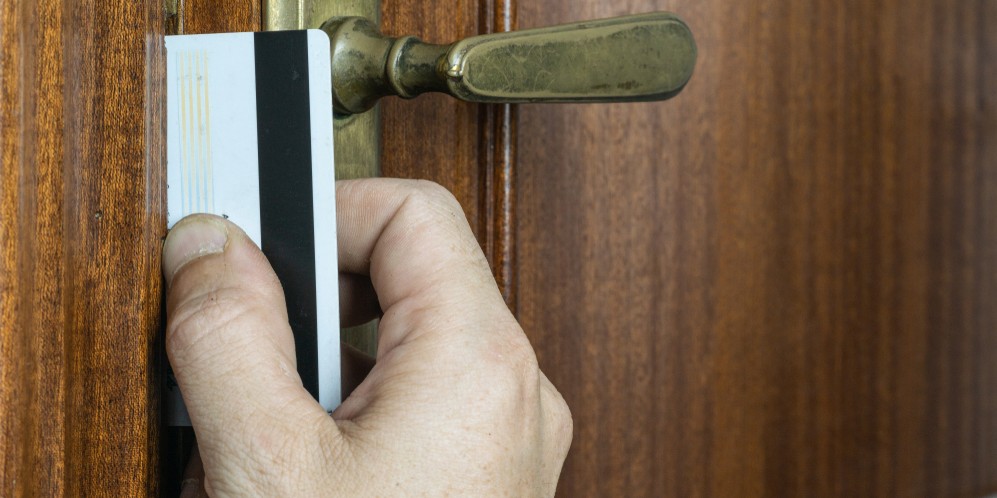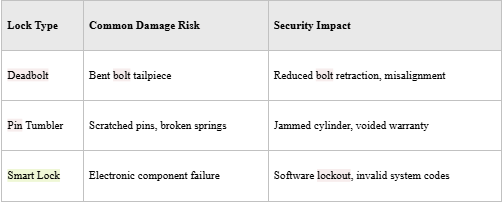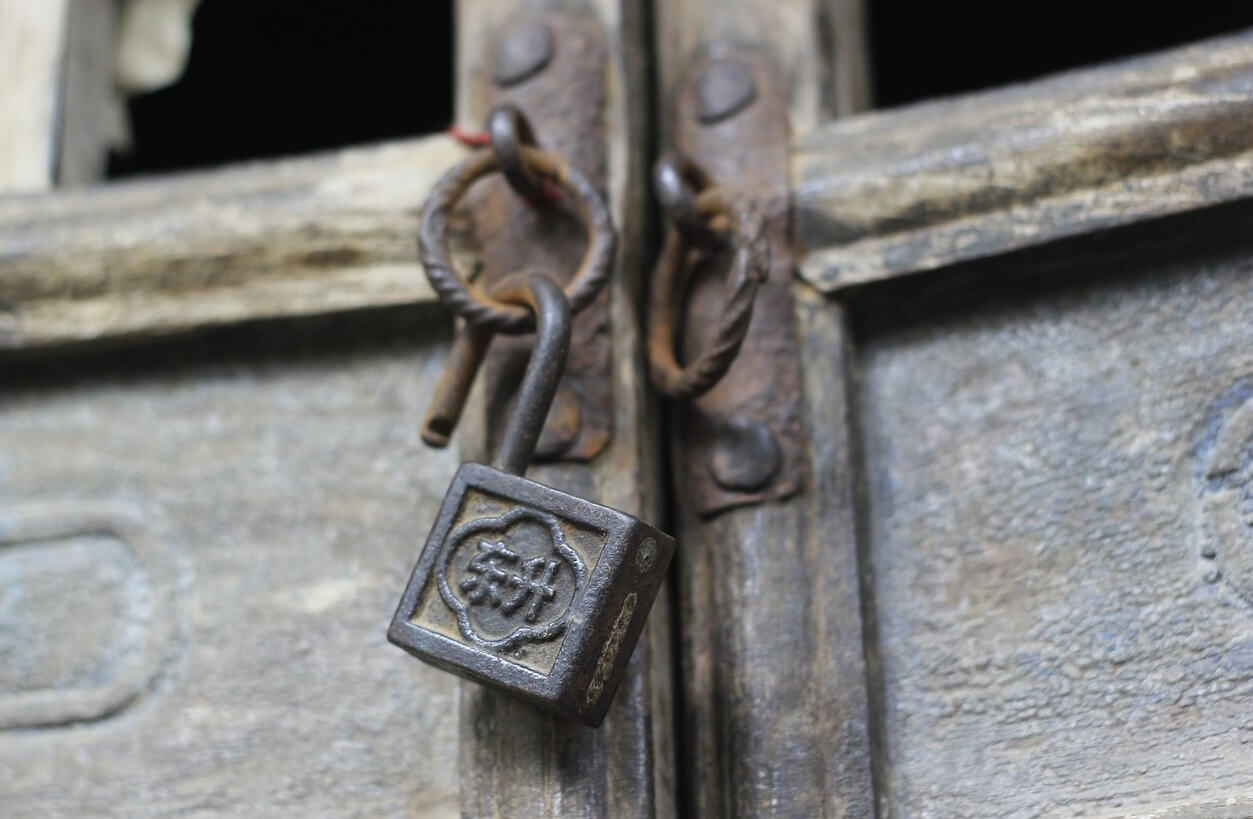How to Unlock a Door Without a Key?

Being locked out can derail your day and damage your door when tackled with improvised methods. At Lost Key Locksmith, we specialise in how to unlock a door without key through precision, non-destructive entry tools that preserve lock integrity and restore access fast. This guide reveals why DIY attempts often backfire, explains the mechanics of common lock types, details professional locksmith techniques, outlines Lost Key Locksmith’s emergency services, presents safe household methods, and shares proactive strategies to prevent future lockouts.
Why Is Unlocking a Door Without a Key Risky? Understanding DIY Limitations and Dangers
Attempting entry without proper expertise risks damaging lock components, voiding warranties, and compromising home security. Novice tools such as bent wires can misalign pins and twist deadbolt mechanisms, turning a minor lockout into a costly repair or replacement.
Risks of DIY Door Unlocking
Attempting to unlock a door without proper expertise can lead to damage, voiding warranties, and compromising security. Using improvised tools like bent wires or credit cards can misalign or break internal lock components, resulting in costly repairs or replacements.
What Are the Common DIY Tools Used to Unlock Doors?

Many homeowners reach for household items when locked out.
- A bent bobby pin can simulate a rudimentary lock pick.
- A stiff credit card may slip a spring latch on simple door knobs.
- A flat screwdriver can pry loose interior latch plates.
Each of these tools carries a high risk of bending internal pins or scratching the lock cylinder, which often leads to greater expense than professional non-destructive entry.
What Are the Risks of Using DIY Methods on Different Lock Types?
Below is a comparison of common lock categories and the hazards DIY tools introduce.

Misaligned pins in a pin tumbler mechanism often render the lock unusable, which underscores why professional non-destructive entry is essential for preserving security.
When Should You Avoid DIY and Call a Professional Locksmith?
Experts recommend calling a locksmith when any of these conditions apply:
- High-security locks like anti-pick deadbolts or electronic keypads.
- Visible damage after an attempted entry, such as bent pins or cracked plastics.
- Time-sensitive emergencies where rapid access is important (e.g., medical situations).
- Smart locks that require firmware resets or battery replacement to regain entry.
Choosing professional service at the first sign of resistance ensures efficient, damage-free entry and avoids escalating repair costs.
What Are the Main Types of Door Locks and How Do They Affect Unlocking Methods?
Understanding lock mechanics guides the choice between safe DIY attempts and professional solutions. Each lock type features distinct components such as bolts, pins, electronic modules, that react differently to improvised tools.
How Do Deadbolt Locks Work and Why Are They Hard to Pick?
A deadbolt lock uses a solid metal bolt that slides into the door frame for robust security. The mechanism requires precise alignment of internal locking lobes before bolt retraction, making forced rotation nearly impossible without specialised tools. For instance, a standard tension wrench applies steady torque while a pick manipulates the bolt’s sidebar grooves, a technique only certified locksmiths master.
What Is a Pin Tumbler Lock and How Does It Respond to Picking Attempts?
Pin tumbler locks rely on stacked spring-loaded pins that must align at the shear line to turn the cylinder. Improper pin manipulation with homemade picks often scrapes the cylinder walls and binds springs irreversibly. Professional locksmiths use calibrated tension wrenches and precision picks to lift each pin without scarring internal surfaces, preserving the lock’s smooth operation.
How Do Smart Locks and Keyless Entry Systems Impact Emergency Access?
Smart locks integrate electronic actuators and wireless communications to control access. A drained battery or software glitch can trigger complete lockout. Rapid response locksmiths carry portable power packs and diagnostic tools to override digital controls, reset system firmware, and restore connectivity without drilling the lock body.
How Do Professional Locksmiths Unlock Doors Without a Key? Techniques and Tools Explained
Professional locksmiths use specialised tools and techniques to achieve non-destructive entry, preserving the lock's functionality and warranty. These methods include tension wrenches, hook pick sets, and bypass decoders, which allow access without damaging the lock.
What Specialised Tools Do Locksmiths Use for Non-Destructive Entry?

These devices enable technicians to unlock complex cylinders without drilling or forcing, ensuring the lock remains serviceable.
How Do Locksmiths Perform Damage-Free Lock Picking and Bypassing?
Locksmiths follow a systematic process:
- Inspection to identify lock type and potential vulnerabilities.
- Tension application with calibrated wrenches to set a binding point.
- Pin manipulation using picks to align internal components at the shear line.
- Bypass methods for specific lock models, such as shimming spring-latch knobs.
By respecting each lock’s mechanism and using refined tools, technicians maintain full functionality while regaining entry.
Why Is Professional Locksmith Service Faster and Safer Than DIY?
Professional intervention reduces average entry time to under 15 minutes, compared to hours of trial and error with household tools. Certified locksmiths ensure:
- Reliability through proven techniques.
- Efficiency via expertise in diverse lock systems.
- Availability with 24/7 rapid dispatch for emergencies.
This combination of speed and security far surpasses improvised methods and minimises interruption.
What Emergency Lockout Services Does Lost Key Locksmith Provide?
Lost Key Locksmith offers comprehensive emergency lockout assistance tailored to residential, commercial, and automotive needs. Our certified team ensures prompt, damage-free solutions around the clock.
How Does 24/7 Rapid Response Work for Residential, Commercial, and Automotive Lockouts?
Our rapid response model includes:
- Immediate dispatch upon call, with GPS-tracked technician units.
- Specialised kits for deadbolts, lever locks, and car ignitions.
- On-site diagnostics to identify the ideal non-destructive entry method.
This streamlined workflow restores access efficiently and reduces downtime across all lockout scenarios.
What Are the Benefits of Damage-Free Door Opening?
Opting for non-destructive entry preserves:
- Lock integrity, avoiding costly cylinder replacements.
- Door and frame, preventing structural damage.
- Warranty coverage, maintaining manufacturer guarantees.
By protecting both hardware and warranty, clients avoid unexpected expenses and retain long-term security.
How Can Lost Key Locksmith Assist with Key Replacement and Rekeying?
- Key cutting on-site to produce new, accurate keys.
- Rekeying services that adjust internal pin settings for enhanced security.
- Master key configurations for multi-door access control.
These additional services transform a single emergency call into a comprehensive security upgrade.
What Are Safe DIY Door Unlocking Methods and When Are They Appropriate?
Certain low-risk approaches can work on simple latch mechanisms, but only in scenarios where lock complexity and value are minimal.
How to Attempt Unlocking a Door with a Bobby Pin: Risks and Limitations
A bobby pin inserted into the keyway can lift spring pins when used with a tension wrench. However, improper angle or excessive force often snaps the pin or deforms the cylinder shear line. Homeowners may salvage basic privacy locks this way, yet any sign of resistance signals the need to stop and contact a locksmith.
Can a Credit Card Open a Locked Door? When Does This Method Work?
Sliding a flexible plastic card between latch and frame can retract spring-latch bolts on inward-swinging doors. This technique only succeeds with thin latch faces and low-tension springs. High-security door latches with anti-shim or anti-card grooves block card entry, making this method ineffective for most exterior doors.
What Are the Dangers of Using a Screwdriver to Unlock Doors?
A flat screwdriver wedged behind the latch plate may force spring latch movement, but risks:
- Splintering door jambs under excessive leverage.
- Scratching cylinder faces, causing future key jam.
- Breaking off screwdriver bits inside the mechanism.
Screwdrivers should be reserved for emergency propping of unlocked doors rather than genuine lockout solutions.
How Can You Prevent Future Lockouts? Smart Strategies and Security Upgrades
Proactive measures minimise the chance of emergency lockouts and strengthen overall security. Strategic upgrades create multiple access points without compromising safety.
What Are Effective Spare Key Management and Hiding Techniques?
- Secure lockboxes: Store keys in coded metal enclosures anchored to the property.
- Trusted contacts: Provide duplicates to a neighbor or nearby relative.
- Concealed spots: Use magnetic key holders under discreet metal surfaces.
These approaches balance convenience with controlled access for emergencies.
How Does Smart Lock Installation Help Avoid Lockouts?
Keyless entry systems use digital codes or smartphone credentials to grant access. Modern smart locks feature:
- Auto-unlock modes when paired with trusted devices.
- Remote code resets in case of forgotten entry sequences.
- Temporary access codes for guests and service providers.
By removing physical keys entirely, smart locks reduce common lockout scenarios but may still require backup methods in case of battery failure or technical issues.
When Should You Consider Rekeying to Enhance Home Security?
Rekeying replaces a lock’s internal pins so old keys no longer work, which is ideal when:
- Moving into a new property with unknown key copies.
- After lost key incidents to prevent unauthorised entry.
- Upgrading security without full lock replacement.
Scheduled rekeying maintains control over who holds functional keys and reduces future lockout risk.
What Are the Most Frequently Asked Questions About Unlocking Doors Without Keys?
Homeowners often wonder about professional techniques, legal considerations, and permissible tools. Understanding the fundamentals clarifies when DIY is acceptable and when to rely on certified locksmiths.
How Do Locksmiths Open Locked Doors Without a Key?
Professional locksmiths use non-destructive entry by aligning pins or bypassing latches with specialised tools. Techniques like lock picking, impressioning, and bypass decoding enable access without drilling or replacing the cylinder, ensuring the lock remains functional after entry.
Is It Legal and Safe to Pick Your Own Lock?
Picking your own lock is legal on your property in most jurisdictions but carries safety hazards. Misaligned picks can damage cylinders, void warranties, and compromise lock strength. Engaging a certified locksmith assures safe entry and preserves security credentials.
What Tools Can I Use to Unlock a Door Without a Key?
For simple latch doors, household items like bobby pins and plastic cards may work but they risk damage on complex locks. Certified locksmiths wield calibrated tension wrenches, pick sets, and bypass decoders, which guarantee efficient, damage-free access across all lock types.
Locked out? Rely on Lost Key Locksmith’s certified technicians for 24/7 emergency entry, non-destructive solutions, and comprehensive security upgrades tailored to your door type and access needs. Our expertise turns every lockout into a smooth restoration of security and peace of mind.
Read More

7 Common Door Lock Problems
Your door lock decides to act up at the absolute worst possible moment, doesn't it? Just when you're rushing to get inside with your arms full of groceries, or when you're running late for an important meeting, suddenly your key won't turn, gets stuck, or worse yet, snaps in half right there in the lock.

What to Know About Deadbolts
Deadbolts are what burglars actually worry about. While regular locks can be popped open with a credit card, deadbolts shoot a thick steel bolt deep into your door frame that just won't budge without the right key. They're built tough—no fancy electronics to fail, just solid steel that laughs off picking attempts and brute force.

Tips for Securing Multi-Unit Residential Buildings
Security in multi-unit residential buildings is a paramount concern for property managers, HOA board members, and residents alike. With the rise of theft, vandalism, and trespassing, implementing robust security measures is crucial to ensure the safety and well-being of everyone in the building.





